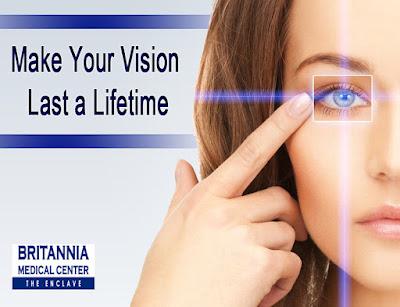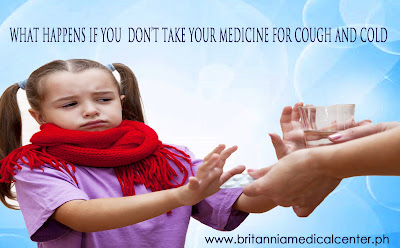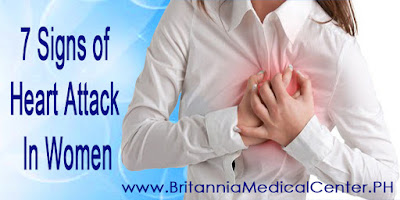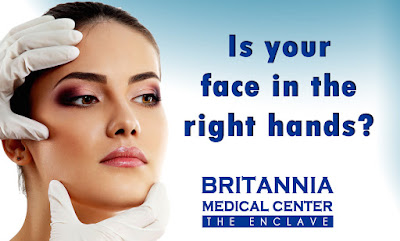Why choose a plastic surgeon who is Board Certified?
Cosmetic
surgery is elective surgery. If you are considering
cosmetic surgery, you should be aware that you can make certain decisions that
can minimize the risks and possible complications of surgery.
The
most important decision is your choice of surgeon.
The vast majority of patients are anxious and uneasy about the process of
choosing the right doctor. Many do not know where to start and what to look
for. The choice becomes more complicated when they are faced with a myriad of
doctors offering cosmetic surgery services. Aside from the legitimate plastic
surgeons, one may encounter general surgeons, ENT doctors, ophthalmologists,
obstetrician-gynecologists, dermatologists and general practitioners all offering expertise as "cosmetic
surgeons". It is not only in the Philippines that one finds this
situation. One can encounter this in almost all countries where cosmetic
surgery is being practiced.
In the Philippines, having a medical license allows a doctor to be
able to practice a wide range of surgery, including cosmetic surgery, even if
the doctor has not had extensive training in this particular field. I surmise
that the reason why the law has not been updated or revised is to enable
medical practitioners in underserved rural areas to be able to perform
life-saving surgery in emergency cases. However in urban areas where one can
avail of the expertise of specialists, it still is the case that patients are
not able to distinguish who are the doctors who have undergone legitimate
training in cosmetic surgery.
Under current laws governing the practice of medicine/surgery, it is not illegal for any doctor to take a
weekend seminar about cosmetic surgery, and then advertise himself as a
cosmetic surgeon on the Monday after the seminar. So what constitutes
legitimate training in cosmetic surgery?
Surgery
training programs in the different hospitals and medical centers in the
Philippines undergo an accreditation process by the Philippine College of
Surgeons. Under the umbrella of the Philippine College of Surgeons are the
different specialty boards that set the standards for the training programs of
each specialty. For cosmetic surgery,
the relevant board is the Philippine
Board of Plastic Surgery
There are 4 residency programs in Plastic & Reconstructive
Surgery which are accredited by the Philippine Board of Plastic Surgery and the
Philippine College of Surgeons. These are the training programs of the UP-PGH
Medical Center, UST, and the 2 consortium programs approved by the Philippine
Board of Plastic Surgery where residents rotate in various hospitals.
Thus the first thing a
prospective patient should look for in the credentials of the doctor is whether
or not the doctor has completed an
accredited training program in plastic surgery. Depending on the
institution, this program involves a minimum of 5 years of residency training
which consists of 3 years of general surgery and 2 years of plastic and
reconstructive surgery.
After a doctor completes an accredited plastic surgery residency
training program, he is already equipped with the basic surgical skills and
surgical judgment to competently perform both cosmetic surgery and reconstructive
surgery, and to start clinical private practice.
Completion of the accredited plastic residency training program
enables the doctor to become a "board-eligible" plastic surgeon,
meaning that he is qualified to take the written and oral examinations of the
Philippine Board of Plastic Surgery. The Philippine Board of Plastic Surgery
(PBPS) is the only organization recognized by the Philippine College of
Surgeons to grant board certification in the field of Plastic &
Reconstructive Surgery in the Philippines.
After the doctor passes both written
and oral examinations, he becomes a "board-certified" plastic
surgeon.
However, the situation has arisen in the Philippines whereby
doctors who have not even undergone the accredited plastic surgery residency
training process have been able to organize themselves into 2 cosmetic surgery
groups, each with its own respective "board" and issuing
"board-certification" in cosmetic surgery.
Doctors belonging to these
groups claim that they are "board-certified in cosmetic surgery" by
the boards of their respective association or society. They have claimed
cosmetic surgery as their turf and as their field of specialization, and in
doing so have come to direct competition with the legitimate plastic surgeons.
If one examines closely the membership of these groups, one will
find a motley group of doctors. On one hand, you will have general surgeons,
ENT practitioners, and OB-Gynecologists, many of whom may be Fellows of the
Philippine College of Surgeons in their respective fields. On the other hand
however, one will also find many with limited or no surgical training at all,
such as dermatologists and general practitioners.
It should be emphasized that the issue being discussed is the
issue of proper credentialing in cosmetic surgery. Underlying this "turf
battle" between the different groups of doctors doing cosmetic surgery is
the issue of surgical knowledge, surgical skill and surgical experience.
Who
can properly lay claim to the practice of cosmetic surgery? Perhaps these questions
can only be answered in the legal realm. As long as doctors in the Philippines
are allowed by the law to practice a wide range of surgery, "turf
battles" between the different cosmetic surgery societies will continue to
exist.
Until the time comes that a new law will be passed that will
regulate the practice of cosmetic surgery, patients should exercise discretion
in choosing a cosmetic surgeon. Upon entering a cosmetic surgeon's office, the
first thing a patient should do is to
inquire whether the surgeon has undergone the proper accredited residency
training program in plastic surgery.
This is the most basic requirement in
looking for a properly credentialed cosmetic surgeon.
" We believe the surgeon you choose could be and should be one of the most important decisions in your life. If you are or have ever considered cosmetic or reconstructive surgery please contact us to schedule your consultation. " - Britannia Medical Center - The Enclave
Do you have more questions?
Make an appointment by
calling 0925-567-5329 • 0908-865-5662 • 0917-566-1932 • 458-0717 and
schedule a consultation today.
Visit us at BRITANNIA MEDICAL CENTER - The Enclave
Enclave Complex, Fil-Am Friendship Road, Angeles City.
britanniamed@gmail.com || www.britanniamedicalcenter.ph || britanniamedicalcenter.blogspot.com





